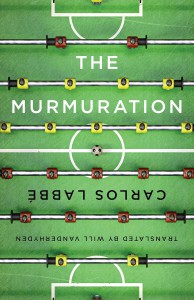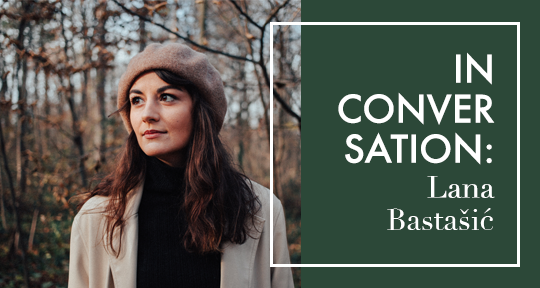We’re starting the week with the fifth installment of the Translator’s Diary, a column by Vincent Kling, winner of the 2013 Schlegel-Tieck Prize. As Kling translates the 909-page Die Strudlhofstiege by Heimito von Doderer for New York Review Books, he is allowing us to peek into the ebb and flow of his thought process. Here is Kling’s dispatch from the prestigious Omi International Arts Center. (Intrigued? Don’t miss the first, second, third and fourth installments.)
Abstraction Meets Craft: My dateline this month is Ghent, New York, where I am writing from the idyllic Ledig House at the Omi International Arts Center. Ten translators, five from English to German and five from German to English, are presenting work in progress during a week of close reading and feedback. I’m grateful for the practical comments about the part of Strudlhofstiege I presented, especially suggestions for bringing out more fully the playfully interwoven levels of the narrator’s voice. That’s crucial, because he’s not only the main event, he’s the only event, the sole governing sensibility, digressing and freely associating as eccentrically as the narrator of Tristram Shandy. He loves the drollery and irony of shifting registers, creating variety by deft incongruities in elevating or lowering the diction. An example: two characters challenge a third character’s plan, because they know from experience it will miscarry. The passage I brought to the workshop said that they were “stubbornly resistant,” but the native German speakers found my rendering one level too high. I had mistakenly retained the narrator’s formality from the beginning of the sentence to the end, even after he had adroitly switched gears. We entertained “they nixed the plan” or “they put the kibosh on the plan”—both now a level too low, we agreed—until I settled on “they balked” or “they dug in their heels.” General endorsement; on to the next refinement.
Meanwhile, my efforts in earlier posts to trace the ancestry of that narrating voice as an aid to grasping its full scope and range—thank you, readers, for not logging off—made me afraid I was straying too far from the practicality of craft. However, the group showed me how a seemingly abstract concern, which I feared might be taking me away from the text, was in fact leading me back to it, since understanding narrative structures in their historical context has a direct impact on a translator’s word choice, tone, and register of diction.
“Learned Wit,” Scholastic Universality, Baroque Elaboration: One participant ratified my search by encouraging me to read Albert Vigoleis Thelen’s German novel The Island of Second Sight (published 1953, translated into English by Donald O. White in 2010). It’s a wonderful discovery in itself and eye-opening in its kinship with Doderer. Thelen subtitles his book a volume of “applied recollections,” a term applicable in moderation to Strudlhofstiege as well, since the narrator is likewise the sole presence and presents a mammoth set of memories that lie decades in the past. Vigoleis, Thelen’s alter ego, similarly glories in asides, digressions, parentheses, addresses to the reader, convoluted backtracking and remote tangents, filigree, pyrotechnics, set-piece lyric rhapsodies, and meta fiction, proclaiming his joy at leading us on wild goose chases and detours around the mulberry bush. These narrators even digress to explain why they’re digressing! Same associative approach, then, but Thelen hews closer to linearity than his Doderer “cousin,” who reconfigures the narrative line into curlicues and zigzags of the kind Sterne draws in Tristram Shandy. Thelen develops from the base line of a story in straight chronological order; Doderer skillfully blends and blurs two time periods, 1908–1910 and 1923–1925. In both cases, the distance in time between the incidents themselves and their accounts creates reflective irony as the basic mode of observation.
READ MORE…






